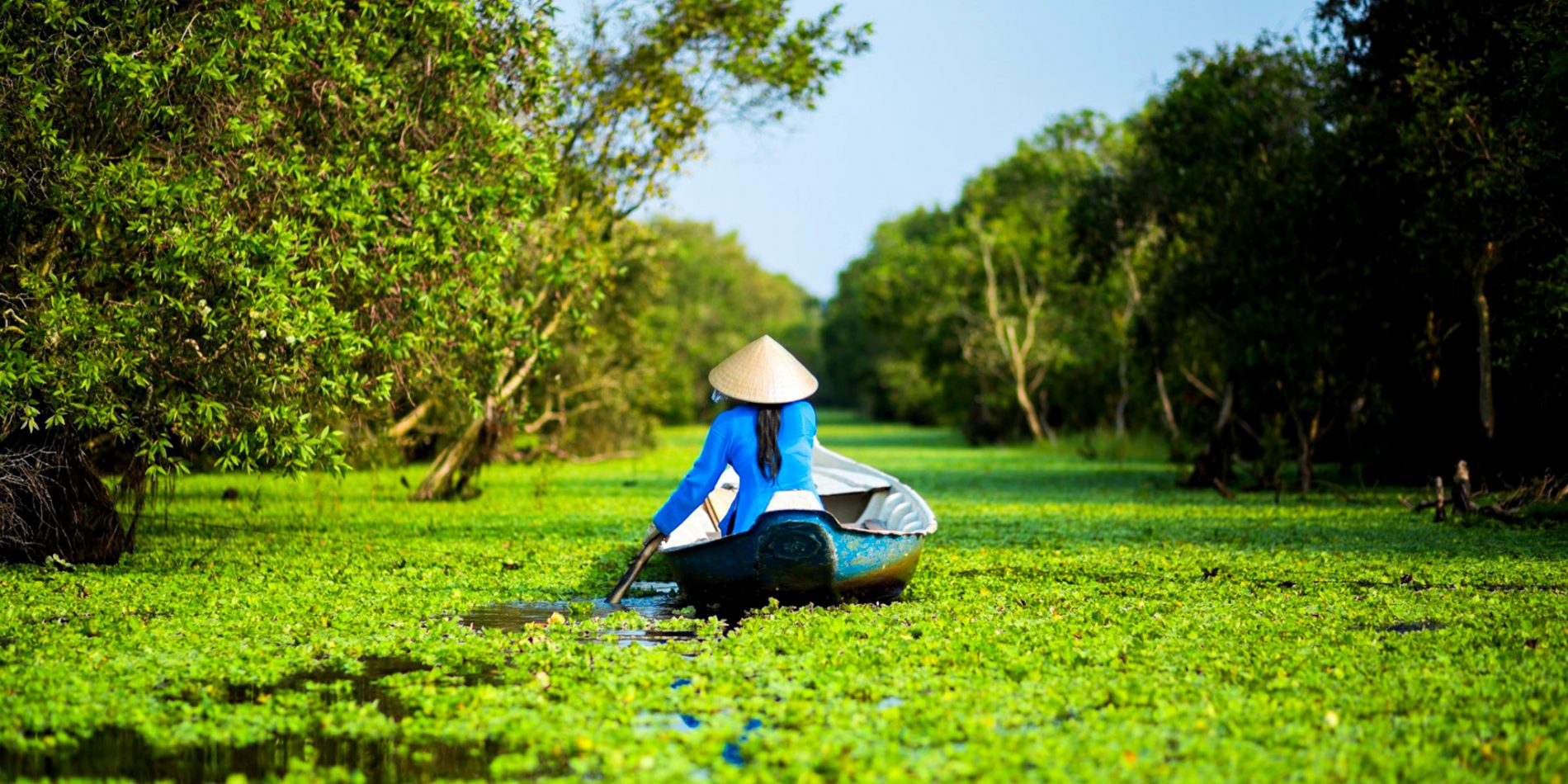News
Travel Sustainable: Top Eco-Tours in the Mekong Delta
Regarded as the River of the Nine Dragons, the Mekong flows from the Tibetan Himalayas to the Vietnamese South, crisscrossing the fertile lowlands before plunging into the sea. The river brings life wherever it reaches, forming a Delta region of unique landscapes, endless fruit gardens, and fish-flocked rivers. A place unlike any other, this water-world is not only famous for its innumerable rivulets and tributaries but also rich wildlife and local culture. Sustainable traveling is the best way to get to know the Delta without disrupting its environment, so let’s start your plan for eco-tours in the Mekong Delta.
The basics – what is ecotourism?
In recent years, ecotourism has taken off drastically and become one of the most popular options among young people. In short, ecotourism is a responsible traveling practice that conserves the environment and improves the lives of the locals. The movement aims to reduce the negative influences of tourism on nature by focusing on low-impact behaviors, education, and appreciation of indigenous ecosystems, and preservation efforts. It also involves learning more about the culture of where you are visiting and improving its communities’ quality of life. We believe ecotourism will bring about the most rewarding and meaningful travel experiences that you have ever had, especially if done right in the fun-filled Mekong Delta.
Top 3 eco-tours in the Mekong Delta
Wildlife Discovery
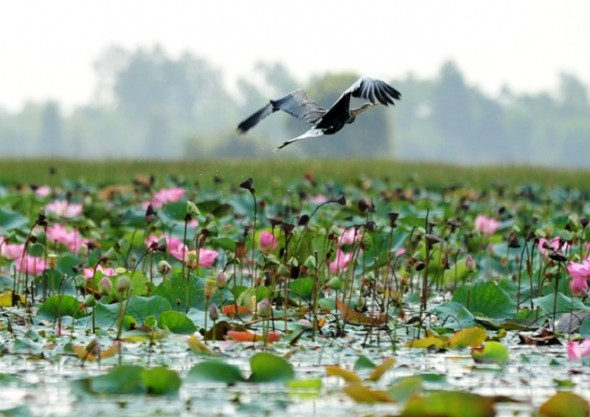
The Mekong Delta is blessed with distinctive ecosystems. You will be able to discover the mangrove forests, swamp forests in Ca Mau, melaleuca forests in An Giang or go bird watching in Dong Thap. Mekong Delta is considered a paradise for birdwatchers. By a tour to Tram Chim national park, you get to learn about 250 species of waterbird.
Tram Chim is located 19 kilometers to the east of the Mekong River. It features a combination of grassland, tropical forest and open swamp. With an area of 7,300 hectares, this park is the fourth Ramsar (Wetlands of International Importance) site in Vietnam. Here preserves one of the last remnants of the Plain of Reeds wetland ecosystem. The site supports a significant number of water birds, particularly during the winter months. A green sight-seeing tour here introduces visitors to the diverse wildlife of the Delta. This is a great opportunity to participate in local activities. For example, rowing, feeding birds, and harvesting rice.
In the dry season, solar-powered canoes travel along the Delta’s small canals, from which visitors can spot cranes, herons, and long-necked darters. Otherwise, appreciating the bustling marine life of over 150 species of freshwater fish is delightful enough. Tram Chim is a place unlike any other. You can watch birds that hover for prey and call for their hordes, as well as swarms of gongs, ducks and white storks spreading their long wings in a garden of blooming lotus flowers.
The shortest route is a quick jaunt that affords visitors a brief glimpse of the park. It’s a 45 minutes boat trip at 500,000 VND per boat. Another 15.5-mile loop from the place’s main viewing area to its watchtower is the most famous option among travelers. This option lasts for two hours and is 800,000 VND per boat. This tour is operated directly by managers of Tram Chim, so rest assured knowing that you are in good hands. You can either book this tour directly at the park, contact +84 277 382 7436 for more information, or use a travel agency to arrange your itinerary.
Handicraft Villages
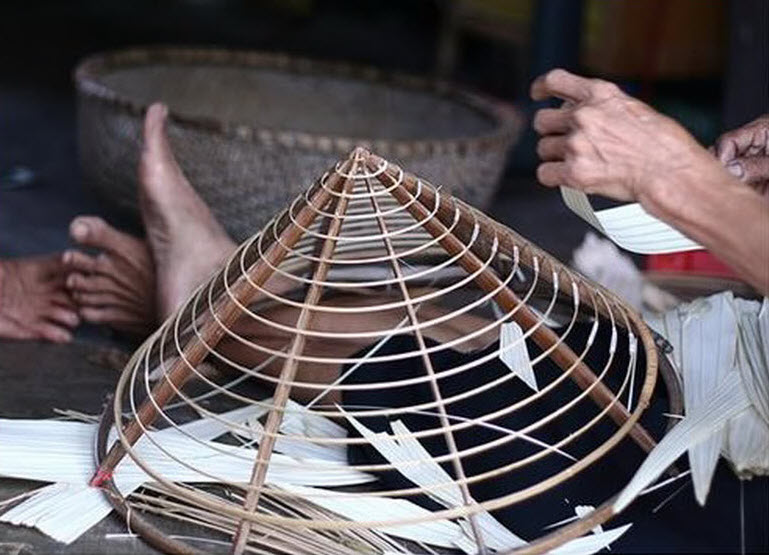
Besides sight-seeing activities, there is no reason for you to overlook the traditional handicraft villages in the Mekong Delta. These villages offer visitors a glimpse of the locals’ lives and their artistry. Visiting the Delta’s handicraft markets is also a great way to discover and preserve the region’s prominent cultural characteristics. By purchasing products here, you are contributing directly to the local community and help local businesses to thrive.
Coming first on our list is Phu My Weaving Village in Kien Giang, known for producing thousands of crafted goods from a sedge plant scientifically known as the lepironia. Bags, purses, handbags, clothing, accessories, and gift sets are Phu My’s bestsellers. They feature delicate patterns and pictures of agricultural life in Vietnam. The Conical Hat-Making Village in Thoi Lai Dist. (Can Tho), which produces the Vietnamese’s iconic conical hats. You should consider this as another must-have destination for your traveling plan. From palm leaves and sharpened bamboos, the skilled craftsmen will make a little twist to the product. This increases the good’s utilities. It can be thick and durable brims for the farmers to wear on the field, or carefully selected and sewn stems for fashion usage. Though coming last, the Phuoc Long Coconut Village in Ben Tre is not to be missed. Coconuts are abundance here. Taking advantage of that, the residents of Phuoc Long have introduced a variety of both edible and household products. Under the villagers’ skillful hands, you will find shells, fibers, and leaves of the Delta’s coconut groves transformed into kitchen gadgets and decorative items. Phuoc Long is also a great place to be if you happen to have a sweet tooth. The village’s specialty is coconut candy, a sweet treat made from coconut milk and juice.
While no tour includes all villages, you can customize your trip to include the aforementioned three by booking with iTour Vietnam.
Plantation and Farm Experience
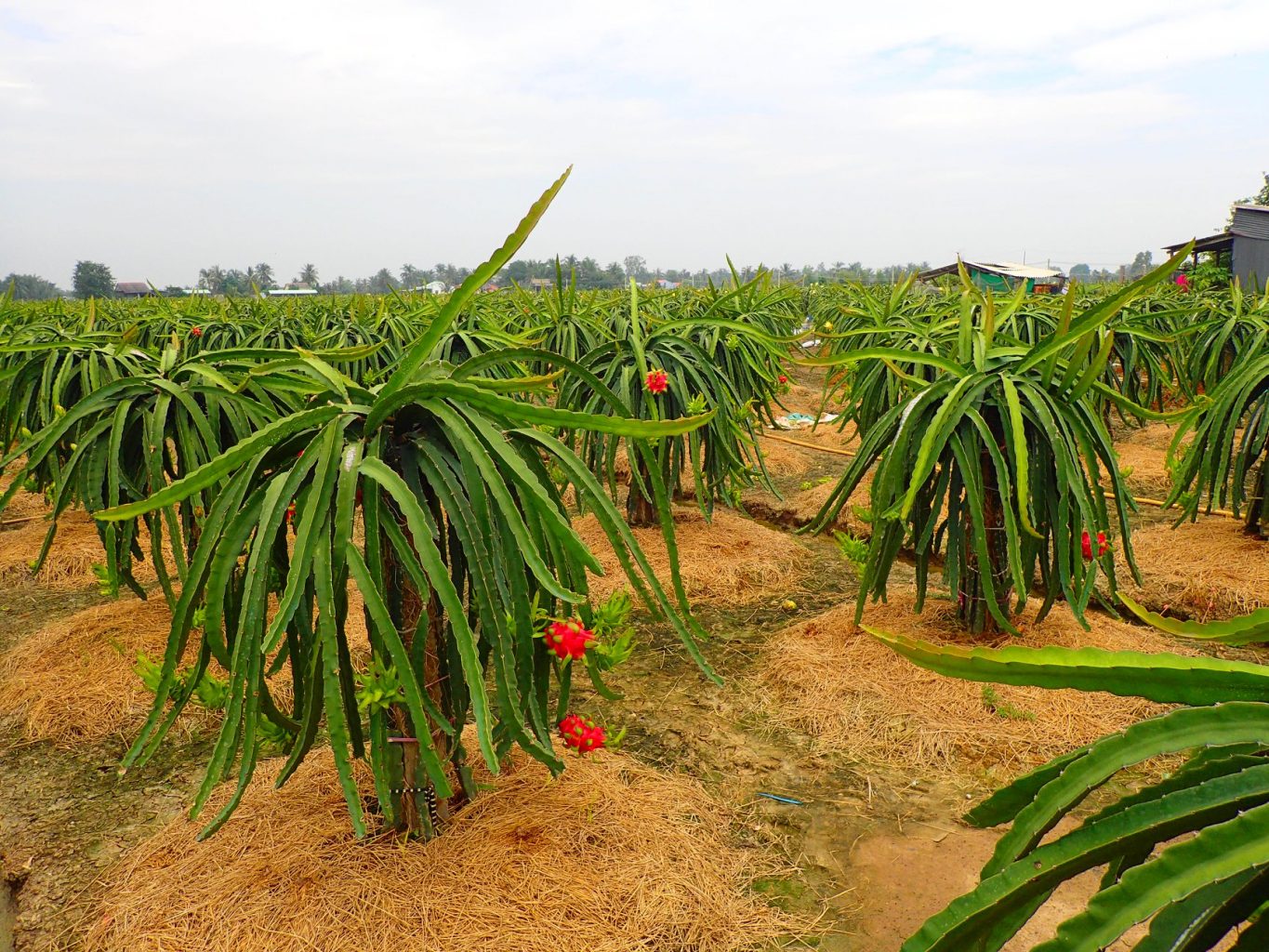
Known as the rice basket of Vietnam, the Delta is also famous for its lush orchards of tropical fruits. Some of the popular orchards in the Mekong Delta you can check out: Tan Phu orchard (Ben Tre), Thoi Son Island orchards (Tien Giang), An Binh Island orchards (Vinh Long) and Cai Be Fruit orchards. Just name a tropical fruit and you will find it here in the Mekong Delta. If you have an adventurous heart, trying out crossbred products. The hybrid between mango and durian or mango and pomelo is also an interesting experience. Visiting orchards is not only an occasion to be in nature but also to have a taste of the Delta, quite literally. If you want to book a tour to one of these orchards, those listed on Viator are worth a try. Just keep in mind that while there are many tours to this fruit orchard, they are often combined with other activities. To find an itinerary that works best for you, check Viator’s site out.
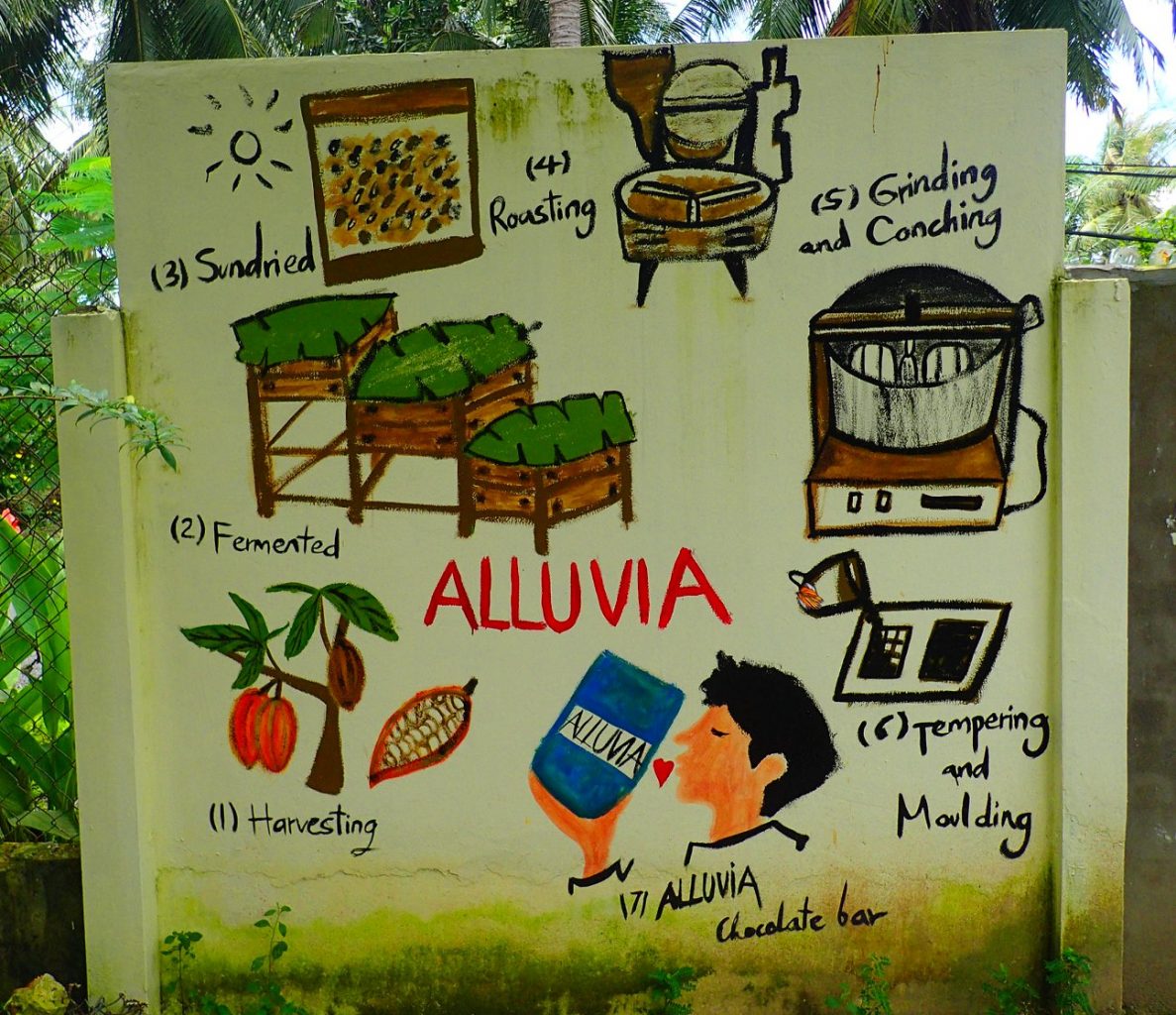
Another highlight of the Mekong Delta is Alluvia Cocoa Farm, which produces thousands of high-quality chocolate bards through a bean-to-bar process. Located in Cho Gao Dist., Tien Giang, the farm’s vast fields and plantations write the story of Alluvia, a two-generation family specializing in bean-to-bar chocolates. A typical itinerary for the day starts when the farm owners introduce to visitors how cocoa trees are cultivated. Later on, you will have the opportunity to participate in harvesting cocoa pods. Then, partake in the chocolate-making process to gain more understanding of the chocolate-making industry. A free tasting session of various chocolate products then follows to boost up everyone’s energy.
You can enjoy fresh coconut juice in the garden while picking your cocoa beans. Alluvia directly runs this tour, you can add more fun to the farm trip by visiting Alluvia Factory and pour your batch of sweets. The tour fee (including the entrance ticket, tour guide, and chocolate-making session) is only 4.3 USD/pax (100,000 VND/pax), so inbox now to reserve a spot.
What is your experience with eco-tours? We would love to hear about it.


